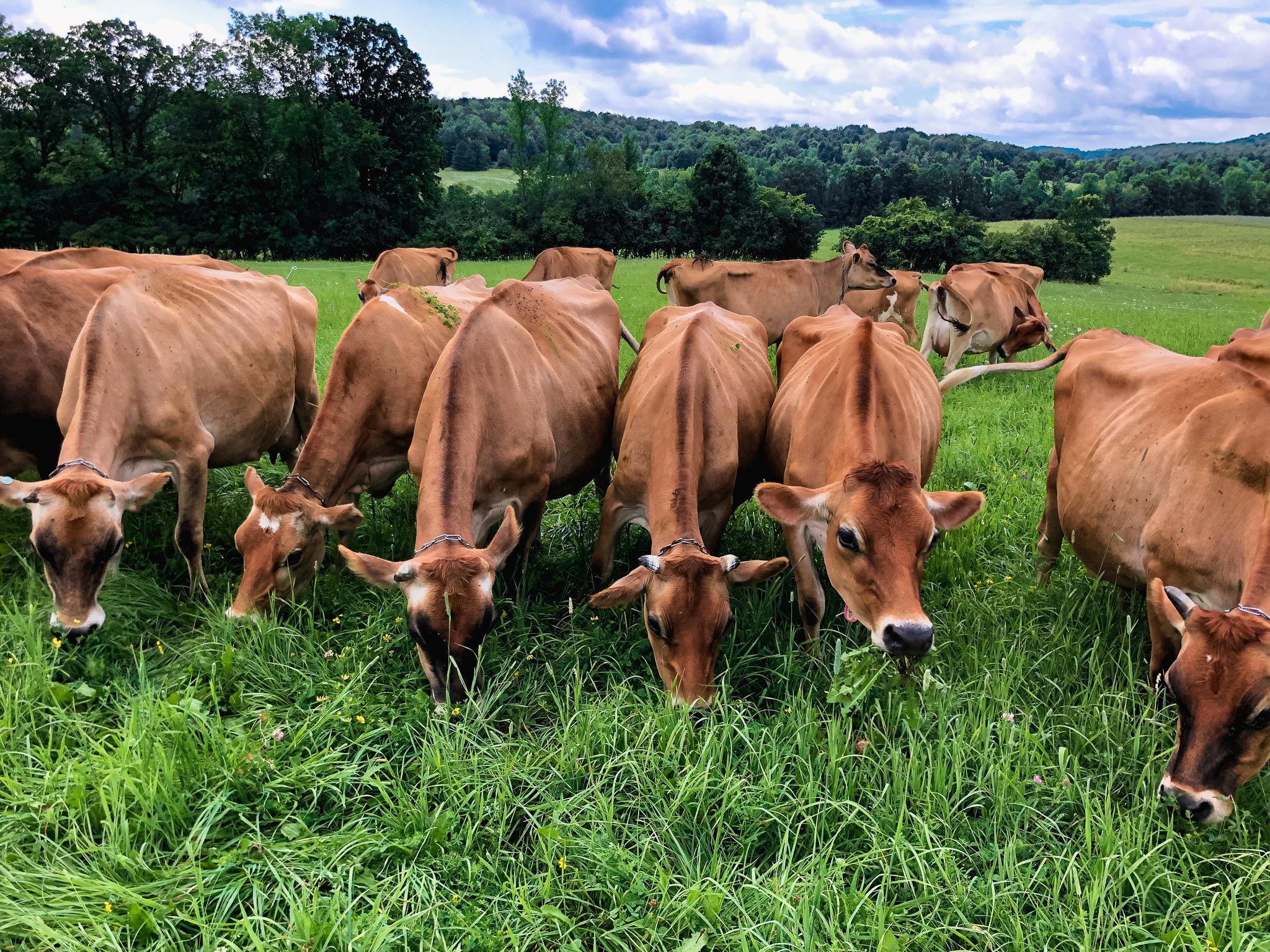Organic Dairy Relief
With the help of the amazing team at Action Circles, we have continued advocating for the emergency relief funding for organic dairy producers we first requested in January. Most recently, the Senate included $6.9 million for these farmers in their version of the budget, along with language directing the Agency of Agriculture, Food & Markets to distribute the funds. We know producers are still in dire need of this support, and unfortunately, we won't know for sure when and whether this funding will end up in the budget until it passes once and for all. There are still several steps remaining in that process.
After the Senate passes its version of the budget, it will go to a conference committee, which will reconcile any differences between the House and Senate versions. After that, it will go to Governor Scott for his signature. Given some big-ticket items at issue this year like housing, childcare, and paid family leave, there's a chance the Governor could veto the budget. If so, the legislature will have to reconvene for a "veto session" (already scheduled for later in June) to override his veto. If the Governor doesn't veto the budget, funds could potentially get out to farmers sooner, ideally by May. In the meantime, we are continuing to stress to policymakers that for many farmers, these funds were needed a full year ago and in some cases longer.
H. 274: Agriculture and Nutrition Education
The goal of H.274 is to establish a statewide curriculum on agriculture and nutrition for K-12 students in Vermont. The House Agriculture, Food Resiliency and Forestry committee has taken testimony on this bill from teachers, students, education nonprofits, state agency staff, and VT-FEED (the shared farm-to-school project of NOFA-VT and Shelburne Farms), but has since put it on pause. While NOFA-VT supports the overall goals of this bill, the testimony presented has demonstrated that providing more resources to teachers, school administrators, and school nutrition professionals is the most crucial next step in expanding students' knowledge of and exposure to agriculture and nutrition.
H. 126: Community Resilience and Biodiversity Protection
H.126 sets a goal of conserving 30% of the land in the state by 2030 and 50% by 2050 and lays out the State of Vermont's vision "to maintain an ecologically functional landscape that sustains biodiversity, maintains landscape connectivity, supports watershed health, promotes climate resilience, supports working farms and forests, provides opportunities for recreation and appreciation of the natural world, and supports the historic settlement pattern of compact villages surrounded by rural lands and natural areas." In recent weeks, language has been added to the bill that clarifies the important role of working farms and forests to Vermont's future and the conservation planning and design process. These changes reflect testimony heard by the House Agriculture, Food Resiliency and Forestry Committee, including testimony presented by Stephen Leslie of Cedar Mountain Farm during our Small Farm Action Days this session. NOFA-VT believes this language improves and strengthens the bill by recognizing the critical work farmers do to support healthy ecosystems while keeping our communities fed. The bill has passed the House and is up for a vote on the Senate Floor this week.
H. 205: Small Farm Diversification and Transition
Introduced by Rep. Heather Surprenant and Rep. Rodney Graham, H.205 aims to provide a distinct funding stream for small farmers seeking to diversify their businesses, or transition to new enterprises that improve their operation's viability. In part, this bill recognizes that popular, longstanding grant programs like the Working Lands Enterprise Initiative are oversubscribed and often better suited to larger or more established operations, while also recognizing that small farms need and deserve similar forms of support to stay economically viable, especially in periods of transition. As introduced, this bill included a $500,000 initial appropriation to support grants of no more than $15,000 for small farmers, to be administered through the Working Lands program with a streamlined application process. Unfortunately, the total appropriation was reduced to $350,000 by the House Appropriations Committee and further reduced to $150,000 by Senate Appropriations during their budget deliberations. A conference committee of the two chambers will determine the final funding for this program's pilot year. NOFA-VT supports this effort and hopes to see funding for it increase over time, if not in this initial year.
Future of Agriculture Commission's Recommended Investment in Meat, Produce, and Maple Sectors
At the beginning of the session, the Governor's Commission on the Future of Agriculture recommended a historic, one-time investment of $10 million into the meat, maple, and produce sectors. As we shared last month, these sectors were chosen because the commission identified substantial growth potential, key barriers for producers in development and/or entry, and specific breakdowns in industry-wide infrastructure needs. This recommendation was complimentary to the Scott administration's recommendation for $4 million for the Working Lands Enterprise Initiative. While these budget requests are still making their way through the appropriations process, each has been substantially reduced. We hope to see an increase in funding for both of these initiatives in next year's budget.

